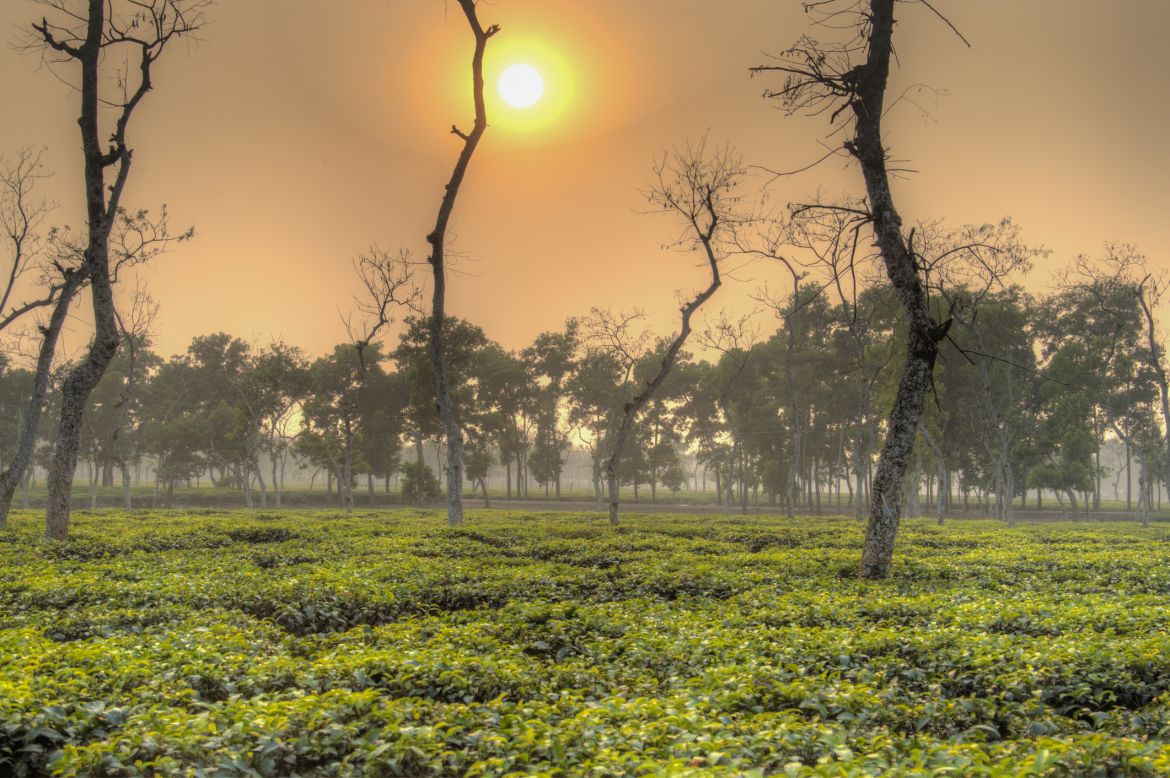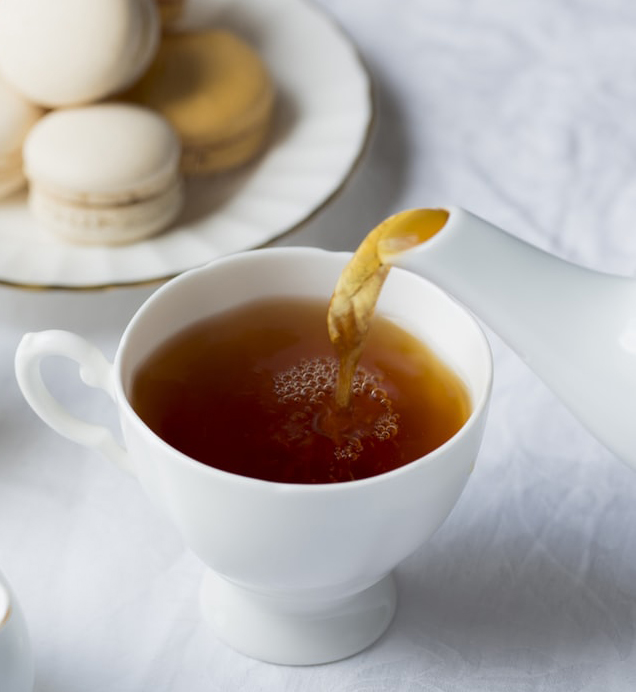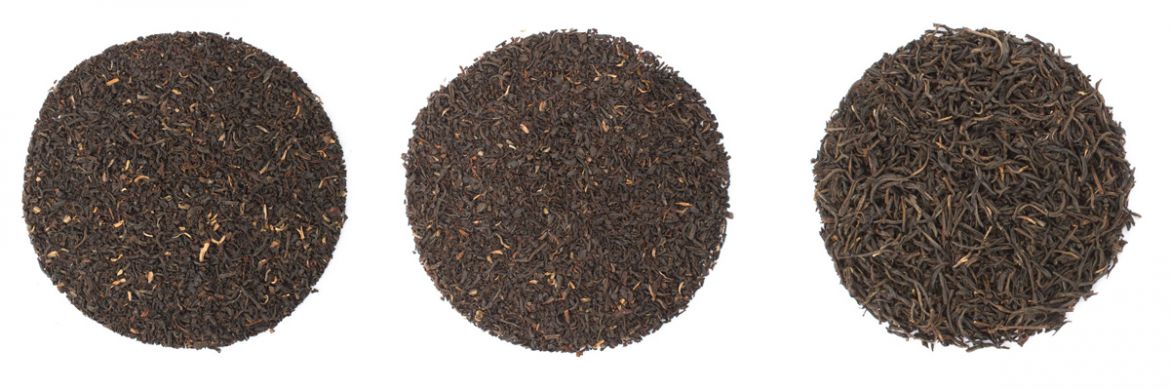The Unique Qualities of Assam Tea
Assam tea is the perfect breakfast accompaniment. For those partial to a dash of milk or sugar, it is the ideal choice.
With around 660 tea gardens, Assam is the largest tea-growing area in India yielding around 60 to 75 percent of the entire production. The tea grows at an altitude of 300 to 800m on both banks of the River Brahmaputra with its fertile virgin forest soil and hot and humid, tropical climate.
The region is situated in the north-eastern corner of India, bordering the counties of Bhutan to the northwest and Burma to the east. Assam is the birthplace of India’s indigenous tea bush: Camellia Sinensis, var. assamica. This tea plant variety produces larger leaves than Camellia sinensis, var. sinensis (China bush) and thrives in this lush tropical region.
During the cropping season, Assam’s tropical weather brings either seasonal rains and sweltering heat and high humidity, or periods of intense sunshine and high heat of up to 35C creating greenhouse like conditions. Fertile, low-lying land and the hot, wet climate combine to produce teas that are dark in colour, with a strong and distinctively malty flavour.
Harvesting and Production

The production of Assam tea is much the same as other black tea’s, following a similar 5-step process:
- Withering: The green tea leaves will come into the factory up to 3 times a day. They will be placed and thinly spread on racks until the leaves lose their moisture and become limp.
- Rolling: Once withered, the leaves will be moved on to the rolling machine that breaks the leaves cells to prepare them for the important step of oxidation.
- Fermenting: Once the tea leaves have been rolled, they are left to ferment on trays. This is a vital step in the process and needs to be closely monitored as one wrong move can affect the quality and taste of the finished tea.
- Drying: Once the leaves have oxidized the leaves are spread thinly across trays and hot hair is blown over them with a machine, making sure all moisture has been removed, leaving the well renowned black tea that we are familiar with.
- Sorting: This is the last step in the production of Assam tea. The tea is fed through a machine on conveyor belts and over vibrating wire mesh trays. The tea is then packed carefully to preserve the flavour.
These steps are expected to be carried out to the highest degree of ability. Monitoring takes place during all stages to make sure that the quality of tea produces is as high as possible and meets the expectations of Assam tea lovers around the world!
History of Assam Tea
In an attempt to break the Chinese monopoly on tea, the British introduced many Chinese varieties of tea.
When the tea plant in Assam was discovered it enabled the British East India Company to establish tea trade. In the 1820’s this company began a large-scale production of tea in Assam.
The first tea garden was established in 1840 and by 1850 the industry had rapidly grown.
Assam tea was introduced to the West by Robert Bruce, a Scottish adventure who allegedly came across the plant growing wild in Assam. He was directed to where the local tribesman would be brewing the tea in 1823, his aim to get the leaves and have them scientifically examined.
Dying before this could be accomplished, Robert Bruce’s brother arranged for the examination in the 1930’s. Once conducted it was established that the plant was a variety of tea but was different to the Chinese version.
Today, Assam is not only one of the most famous tea districts throughout the world, it has also been the second largest producer of tea – only second to Southern China.
How to Brew Assam Teas
For those in favour of a dash of milk or sugar, Assam tea is an ideal choice.
Following a standard brewing process, you can also give this well-loved breakfast tea a try on its own!

Brewing Assam Tea:
- Boil some fresh cold water
- Place the tea leaves in a tea strainer or filter basket
- Pour the hot water
- Steep the tea for the appropriate amount of time
- Strain the tea
- Sweeten the tea to taste, and/or add a dash of milk
- Sit back and enjoy!
Brewing Table
 Ranging from 1 levelled teaspoon to 1 slightly heaped teaspoon
Ranging from 1 levelled teaspoon to 1 slightly heaped teaspoon
 2-4 minutes
2-4 minutes
 Ranging from deep dark to golden brown
Ranging from deep dark to golden brown
NOTE: Please make sure to read the individual brewing instructions on each package of tea.
Strong, spicy and with a malty character Assam teas are teas we know and love!
Our Assam Tea favourites are below:

Assam Bari Assam Golden Melange Assam Boisahabi
- Ronnefeldt Assam Bari - A classic broken graded Assam from one of the best known tea gardens. This tea is malty and spicy with an extravagent, lively taste with many golden tips.
- Ronnefeldt Assam Golden Melange - An Assam at its best- typically full flavoured and malty, blended using a traditioal recipe.
- Ronnefeldt Assam Boisahabi - A First Flush Assam tea, delicate and highly aromatic with a slightly sweet and malty taste. A delight for every Assam lover or newcomer to this tyoe of tea.





 EARN POINTS WITH OUR LOYALTY SCHEME
EARN POINTS WITH OUR LOYALTY SCHEME






